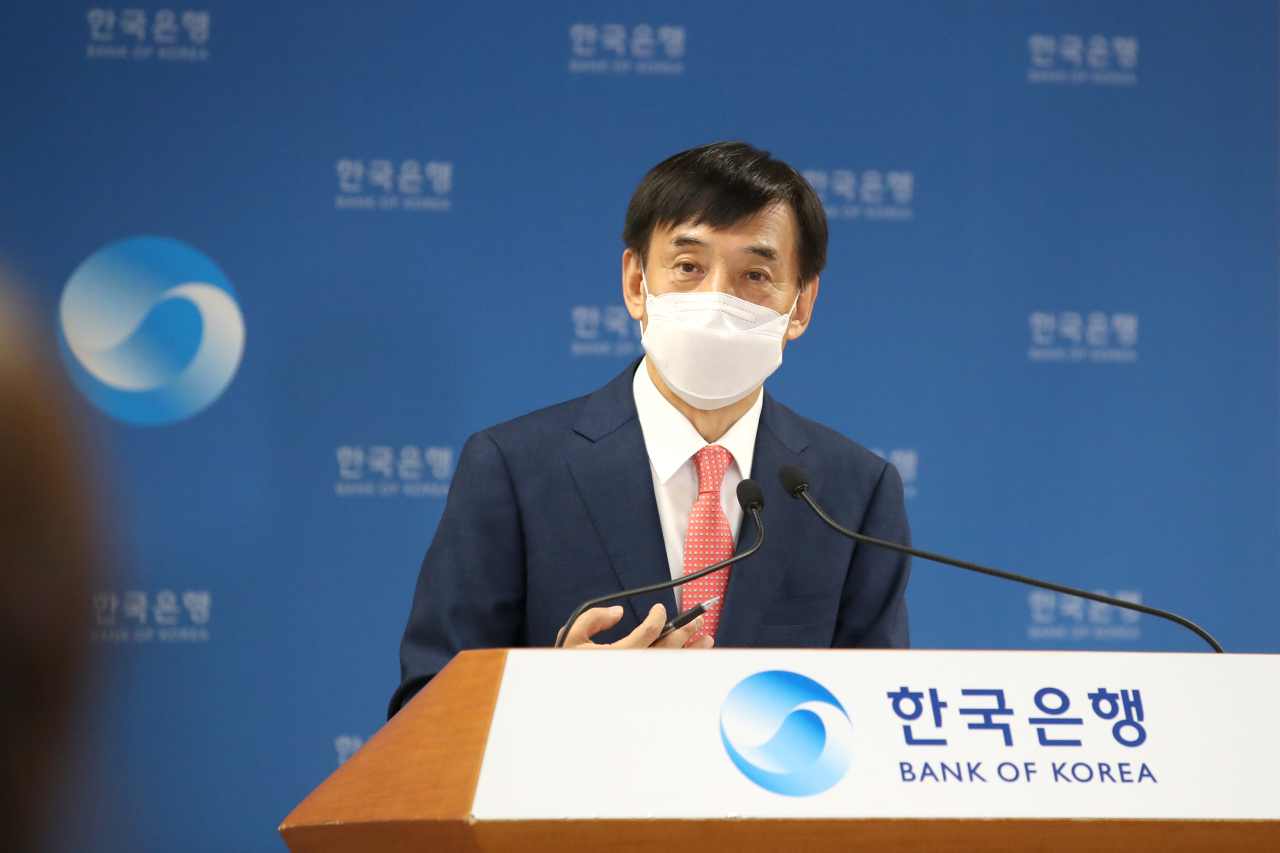The chief of South Korea’s central bank said Thursday that its “interest rate normalization” will come at an “appropriate time” by the end of the year, setting a solid time frame for a policy shift for the first time.
“The current pandemic-era monetary easing is extremely dovish compared with the state of the economy,” Bank of Korea Gov. Lee Ju-yeol said in a press briefing.
Asia’s fourth-largest economy has been recovering at a faster-than-expected pace, boosted by its rebound in exports. Its vaccination rate has been gaining traction as well. The central bank raised its growth outlook for this year by 1 percentage point to 4 percent, taking such factors into account.
“Normalization of monetary policy in sync with economic recovery is a natural step,” Lee explained, while expressing concerns of the nation’s snowballing household debt due to record-low interest rates and imbalance in financial markets.
“An excessive flow of money into the asset market has been observed and there are issues with household debt -- there is a need to manage the monetary policy in regards to the financial imbalance,” the central bank chief said.
The BOK has kept its benchmark interest rate frozen at a record low of 0.5 percent since May last year to pump liquidity into the market in a bid to minimize financial risks stemming from the COVID-19 pandemic.
The nation’s household debt has been snowballing at an unprecedented pace since last year, as retail investors rushed to stock and real estate markets to take advantage of the low-interest borrowing.
As of end-March, the outstanding debt of South Korean households reached 1,765 trillion won ($1.55 trillion), up 9.5 percent from a year prior. It had grown 4.6 percent in the first quarter of last year, 5.2 percent in the second quarter, 7 percent in the third quarter and 7.9 percent in the fourth quarter, according to an earlier report by BOK.
The BOK’s next rate hike would mark the first such move since November 2018.
With the BOK’s timeline getting clearer, industry watchers project the rate hike to come as early as the third quarter, with some even saying more than one may come this year.
“The rate hike is projected to come around October,” Cho Yong-gu, an analyst at Shinyoung Securities said.
“So far, the first dose vaccination rate stands at some 27 percent and it is projected to exceed 50 percent by August or September,” he added, indicating that vaccinations will work as a key factor in determining the rate hike timeline.
Ha Joon-kyung, an economics professor at Hanyang University in Seoul, said that “with the current progress, carrying out two rate hikes by the end of the year is unlikely to result in economic contraction.”
The latest rate hike signal means that BOK is likely to raise its interest rate before the US Federal Reserve, a rare move that has not occurred since July 2010.
The US Fed has been expressing its commitment to maintaining its interest rate at near zero, with experts projecting no rate hikes until after the first half of next year.
The BOK must tread cautiously in carrying out a rate hike this year, as following the US Fed’s lead could further burden households with debt, but moving too late could trigger a massive outflow of foreign investment, according to the Korea Economic Research Institute.
Lee also expressed worries of inflation, saying that “if the prices continue to climb for a prolonged period of time, inflation expectations of economic entities could spike, leading to further price hikes.”
The BOK said earlier it projects consumer prices to float around 2 percent in the second half of this year.
The country’s core inflation, meanwhile, excluding volatile food and energy prices, is forecast to exceed 1 percent, as with the nation’s economy showing signs of fast recovery, it added.
In a separate report released Thursday, the BOK said that core inflation, excluding volatile food and energy prices, has been growing at faster pace than during the 2008 global financial crisis.
(
mkjung@heraldcorp.com)








